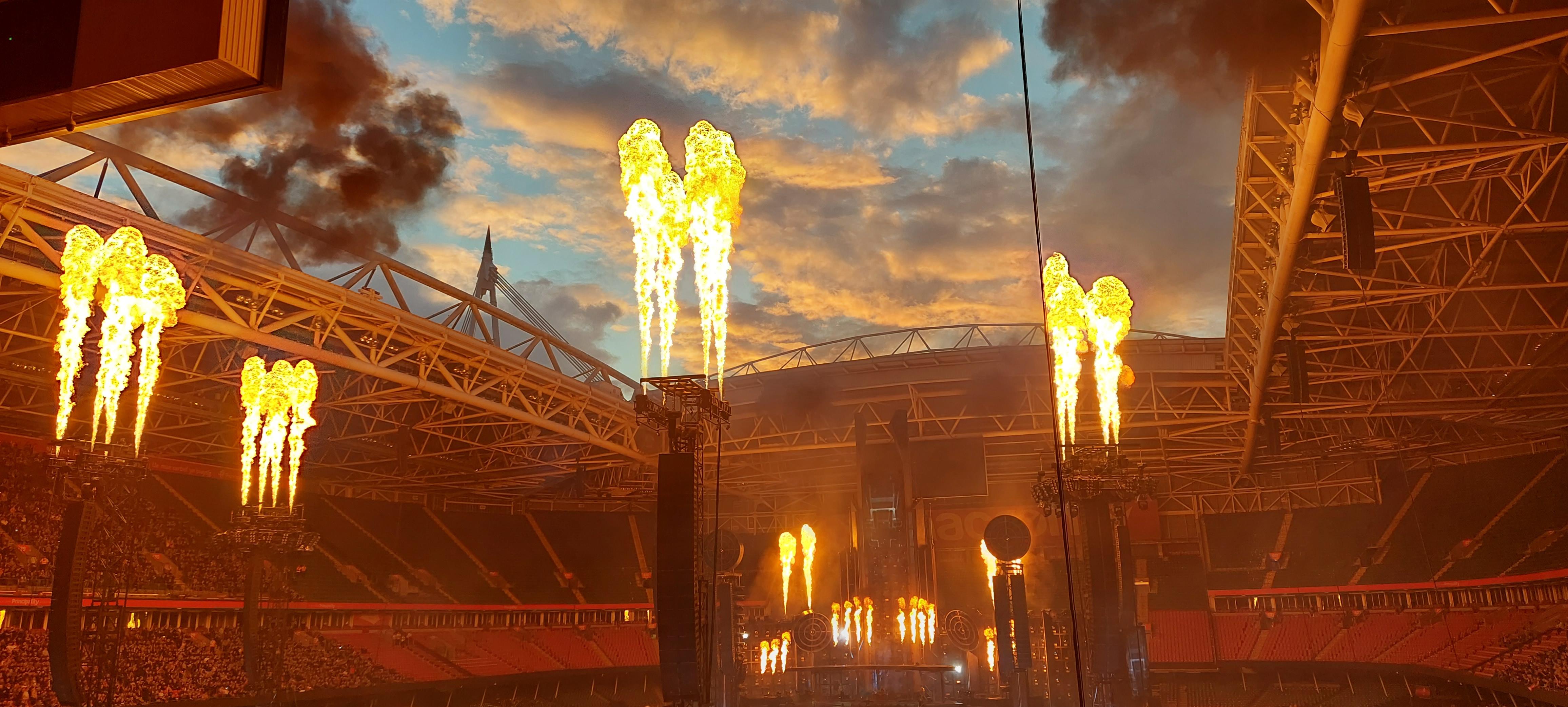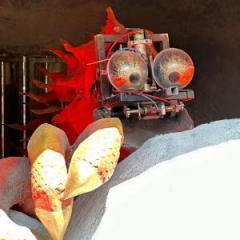Leaderboard
Popular Content
Showing content with the highest reputation on 01/11/19 in all areas
-
Hocus Pocus Hall
Hocus Pocus Hall
Ringo and 3 others reacted to mrmonkey for a post in a topic
4 pointsSuccessful parks with no or minimal IP :- Efteling, Europa (has some carefully considered and integrated IPs), Toverland, Phantasialand, Hansa Park, Tivoli Gardens, Grona Lund, Lisberg to name a few I have nothing against IPs in theme parks in theory - I mean I love Disney parks which are one giant IP BUT there is a Balance, and I don't think the future is or has to be IP based just in the same way virtual reality isn't becoming the way forward in theme parks either. IP's work well when they are considered and integrated and carefully chosen - such as Arthur at Europa - I haven't even seen the movie its based off - yet it's one of my all time favourite rides - because the IP is so visually strong, and had huge scope for immersion. I personally feel Merlin are taking many missteps because they are concentrating on throw-away IPs, with everything done from a marketing perspective as apposed to a design perspective, nothings done for the long-haul. They are also letting old areas and rides rot, with minimal spending to maintain the rest of the parks to create a Value WHOLE experience for its guests, they are constantly removing value as apposed to adding to it (theming, detail, quality signage, planting etc etc). Also where has the distinct themed 'lands' concept gone? - Gruffalo in 'Transalvania' (dark forest I know, I know) and DBGT next to I'm a celebrity next to Walking dead at Thorpe. Chessington is loosing it's 'ADVENTURE' in its namesake! And I know originality and Imagination isn't dead - because all you have to do is look to Europe, Even Parc Asterix, which is one huge IP Integrates original ideas INTO its IP! I still experience the same sense of magic visiting certain parks that I did as a kid at Chessington in the 90's, it really has nothing to do with age! That's what I feel is lost - any sense of magic at Merlin parks. Theme parks used to be places to Excite and inspire the imagination - not have it spelled out for you in very generic, Homogenised ways, they were there to be an alternative to television and media - not an extension of them! However at the end of the day I can UNDERSTAND Merlin, because they are a different type of business to say Hansa park which is Family owned. Merlin is a money making machine I get that, however I can state how disappointed I am with Merlins product, and still believe they would still thrive if they where run under differing management perspectives with a more design and quality based ethos! but they have their ethos that must be working for them ££ wise so.........4 points -
Hocus Pocus Hall
Hocus Pocus Hall
Matt 236 and one other reacted to SteveJ for a post in a topic
2 pointsGreat post. Although this point about making sure people turn up, it depends on what part of creating entertainment you mean I suppose. I learnt a lot from designers of well-known attractions who spoke about their experiences creating rides in the UK. These are people who spend over a year on projects, it becomes they're daily life. But they don't think 'we've bothered to spend so long on this that we'll use an IP to make sure people turn up'. The only people who think along those lines are the senior board (if its a company the size of Merlin), who have no involvement in attractions other than satisfying shareholders with no-risk growth. However, Merlin acted like this even before they were a public company. It's absolutely understandable that a business will want assured return when it spends millions of pounds. But there are so many great strategies to ensure a good idea with the right potential becomes a successful attraction, without just buying the popularity of an existing IP. I've also been involved in building small attractions and events (as part of wider teams, I wouldnt claim credit), but plenty of people turned up and enjoyed what we'd made regardless of no IP. I found the popularity of the event was based on past reputation, growing big success over the years. These were attractions that took months of hard work to create, but made a lot of money and were entertaining. To be honest, people's responses were a far cry from Thorpe Park's no-budget IP Fright Nights events of recent times. It's always very interesting to see what people react to and what they don't, and see how reputations build over certain attractions we made. Where I thought mistakes had been made, sure enough guests reacted poorer. Or where a great idea just hadn't been realised properly, the word spread it wasn't so good. I find the same goes for most attractions if you look in enough places and hear/see their reactions first hand. I guess what I'm getting at is, people do turn up in big numbers for good entertainment, and they do still react badly to bad entertainment or missed opportunity. It just takes time and effort and word of mouth over repeat years to grow an event into a big success. So far more worth the effort of creating good entertainment to accumulate success. Some original attractions have lasted decades and the public love them, because they were entertaining and grew word of mouth. While most cheapo IP attractions in this country have lasted 5 years max and died a quick death. Also I think fairytales and well-known themes, like 'space', 'haunted', 'egyptian', etc, are a great way to attract guests. You can use that as the hook to attract guests and put your own spin on it from there. It's different from IPs, because no brand deal is involved and you're still basing your business on the entertainment of guests. Original concepts can still be simple and work well.2 points -
Hocus Pocus Hall
Hocus Pocus Hall
2542464 and one other reacted to mrmonkey for a post in a topic
2 pointsAnalysts sifted through more than 550,000 customer reviews of around 100 Merlin attractions. They also examined a monitor that tracks average queue times at theme parks. They found a continued decline in average reviews across Merlin’s Midway Attractions brands, which include the Blackpool Tower and Sea Life Centres. Merlin also operates Legoland and resort theme parks including Alton Towers, Chessington and Thorpe Park. UBS raised the alarm six months after it first expressed concern about increasingly negative reviews at the company’s city centre sites. “We now have greater concerns that this trend could be the result of poor investment and operational decisions, with cost-cutting and a focus on new business development potentially leaving the core profit drivers of Midway under resourced,” the analysts said, as they hung a “sell” sign over the stock. They have also turned bearish on Legoland. While conceding its strong brand and potential for roll-out in markets such as China, they cited weak like-for-like growth in 2018 and a significant decline in average reviews at Legoland Windsor. Dampening investors’ hopes of a recovery, the note sent Merlin shares down 17¼p, or 5 per cent, to 327¼p. another similar article here:- https://www.proactiveinvestors.co.uk/companies/news/212322/merlin-entertainments-skids-lower-as-ubs-cuts-its-rating-target-and-estimates-on-concerns-over-midway-customer-review-data-212322.html?fbclid=IwAR2H2CX85q7Ibz-JiHGDh0b_kKiFG1NICaVsjTuHhVLub4vPW3h6I9e4MNA2 points -
Hocus Pocus Hall
Hocus Pocus Hall
Matt 236 and one other reacted to SteveJ for a post in a topic
2 pointsThey're not responding to a natural change. They are constructing a change to suit their business model best, or at least following the commercialism started by other entertainment giants. It's the McDonalds 'clone and conquer' model that has been around for decades, only now it's happening to theme parks outside of Disney. Merlin and others have systematically changed the theme park industry to be what suits their business model best. This includes running a monopoly in the UK, so that they can squeezing people's salaries, strip out value for money, charge higher, and give unfair contracts to attraction industry contractors who have few other businesses to work for in the UK. All I "liked the theme park industry to be" is entertaining and something unique, not just a commercial extension of pre-existing franchises and a highly marketed tourist trap machine. This is exactly the same as how I feel about the movie industry and music industry today, the only difference with those being that there is far more selection to chose from and great music/movies can still be made on low-medium budgets (even of kinds I don't have a taste for, it doesn't matter, as long as they can still be made). But you can't make a theme park on a budget smaller than several million. In their quest for massive growth in the shortest time possible, the only thing that suits Merlin's model is growing a quota of IPs. Then pumping huge amounts into marketing manipulation, to get people to pay more for less and go for brand over value. That's really all there is behind their decisions. It's a negative on the whole industry, not just my personal preference. You say all parks are adapting towards this, but many hugely successful parks around the world show the enormous benefits of going for long-term value than short term fads. Take a look at one of the most successful 'new' franchises in the last 25 years, Pirates of the Caribbean. The original movie was an idea that people were trying to get off the ground for years, but Disney actively tried to stop it being made, citing market research "the public don't like pirate movies" because they had some previous adventure movie flops. When the board at Disney were persuaded to fund it (which included tieing it in with the ride), they tried to shut down production a couple times and even suggesting firing Johnny Depp because his character was 'too strange'. Of course, when the movie got made, everyone loved it because it was great fun and unexpected. What about that market research that said it would be a huge failure? The moment it became a success, it was 'well done' to the board that was determined to stop it getting made. The next thing you know, it gets turned into another never-ending franchise until it too has run out of steam. If the original movie was a rare case of an original idea slipping through the net, imagine how many other potential successes were cancelled? The reason these don't get made by big companies is because, like all good ideas, it carries a degree of risk. Inflated business at the level Merlin has grown to requires ALL risk to be removed. IPs have little to do with trying to entertain people more, more to do with this no-risk, short term growth. I'm not against good business, I want the whole UK industry to make good business (which it certainly isn't doing with Merlin's dominance), but taking healthy risk is a fundamental part of good business. Also, the main thing that working in UK attractions over the years and visiting more parks abroad has shown me, it's that people still do respond the same to good entertainment as they did when I was young, they don't actively ask for it, but give them a surprise or pull off a good idea well and they do enjoy really it. This is worth so much more than a patchwork park of IPs, which they will be drawn to in bigger numbers in a shorter space of time, but ultimately isn't sustainable and is just part of the franchise game.2 points -
Thorpe Park Rides & Attractions Game 2018
Thorpe Park Rides & Attractions Game 2018
Charlesberg reacted to JoshC. for a post in a topic
1 pointNow THAT sounds like an interesting, hilarious and potentially highly argumentative controversial game. I love it.1 point -
Hocus Pocus Hall
1 pointrelevant too:- https://www.thetimes.co.uk/article/merlin-dips-amid-concern-it-could-be-losing-its-spell-pggwtqk5j1 point
-
Hocus Pocus Hall
1 pointI think the bigger concern will be in a few years when there are about 28 million versions of a (for example) How to Train Your Dragon themed area/attraction and it loses any sense of actual individuality or appeal... And the inevitability that one is awesome and another is utter crap...1 point
-
Hocus Pocus Hall
1 pointThing is though, IPs are the future of the theme park industry, and the even the wider entertainment industry. How many successful parks don't have external IP brands in these days? Whatever the answer, it's a dwindling number. And when you look further, the entertainment industry has been lending itself more and more to brands - sequels, spin offs, re-makes, merchandise, interactivity via the internet, etc. The entertainment industry is now primarily focused on creating things which have a strong focal point, from which further things can be created, and capitalise on that focal point to make more money. That's effectively the same logic as a park bringing in an external IP. Yes, you are bound to the parameters of the IP owner. But those parameters can be agreed upon by both parties. If a park agrees to use an IP when they've agreed too restrictive conditions for use of that IP, that's ultimately the park's fault, and I'd wonder if given the free reign to create an attraction for the sake of entertainment, they'd have done any better. That comes down to people not being fit for the industry, not IPs being an inherit hindrance in the industry. This is big thing that jumped out to me in your post. The industry has changed from what it used to be, what you liked it to be, and Merlin is responding to that change. Maybe they're being a bit too full-on with embracing this change, but that doesn't mean they're not about originality. Yes, they're a business, and yes any new attractions will include a check-list of silly buzz words that any new attraction must fulfil, and Merlin are taking less risks. But the building block behind that all is originality and entertainment. Just because you don't agree with the way things are done, it doesn't mean things have changed.1 point
-
Hocus Pocus Hall
Hocus Pocus Hall
HermanTheGerman reacted to SteveJ for a post in a topic
1 point"Merlin still about originality" With respect, this couldnt be further from Merlin's real intentions and procedures. Sorry for the looong post! Merlin started off buying already-successful attractions and turning them into formualted 'IPs' (The Dungeons brand, the Sea Life brand, the 'Eye' brand, etc) so that they could be cheaply copied all over the world. So it makes sense that now they are trying to seek other brands too. They now stipulate dark rides have IPs and that they grow their "IP portfolio" every year. Merlin – the parent company, not their parks (much to Merlin's annoyance) – were never about originality or entertainment. Nick Varney has never stopped talking about brands and IPs in this way since Merlin began. So not the death of originality, but we've already a huge decline in creativity, entertainment and value for money. In his own words, "IPs are the future of theme parks", and if you don't think so, you're wrong, he says. Therefore, so long as this is belived, I do see the death of (most) originality at Merlin owned parks. When you licence an IP, you are bound to design only within the parameters given by those who own the IP. It's a fundamentally different process to creating an attraction for the sake of entertainment business. You're no longer creating business out of how good your entertainment offering is. Instead you're making a deal – I'll use your already successful 'brand' to guarantee my own success regardless of what I make, while I pay you money for it. So the entertainment is completely secondary, and that's what the entertainment industry is understandably irked by. It's dark rides that suffer the most from this model, the (completely wrong) assumption that any dark ride 'WILL fail' if it doesn't have an IP, based completely on assumption by people who have no experience with entertaining people whatsoever. We already have a public who are more easily beguiled by massive global marketing, which isn't actually interested in entertaining people at all. Whenever parks appear in conversation with people I chat to, it's an expectation that theme parks are just based off movies and TV shows, that they're just an extension of 'franchises'. This wasn't the case when I was young and the families I used to visit parks with. There are always exceptions, but honestly I don't like the expectation that kids should just respond to the biggest brands they see on TV, rather than be surprised and imaginative. Also, there's no identity if a park like Chessington becomes a patchwork of fad IPs and declined (once fantastic) old rides. It just becomes a competition of whose brands are bigger, which is why Legoland Windsor wins, despite being currently the worst value family park in the UK. I'm only grateful that so far it's turned out alright, with IPs that suit. Gruffalo is charming for a British family park, not like the other IPs that were considered for it... This is the work of the people having to deal with the stipulation to use IPs, in finding the least-worst option, or designing the most creative solution around the limitations. Cbeebies Land is the cheapest, nastiest, falling-apart IP refurb I have ever known in a UK park. But even then, the designers tried their best with what they got. Personally I like the look of the new Hocus Pocus plans so far. It seems like this IP is less restricting to design than usual, so really it could be any walkaround but just has the Gruffalo name and characters slapped on top. But again, we almost got a different IP refurb this year, which thankfully was persuaded against. Tiger Rock had a cool station overlay and new drop, but the rest was the last thing the ride needed. It had been in a shocking state for years, but no money was allowed to be granted until the "zoo brand" quota could be ticked. This isn't how you properly develop a great zoo or a great park. And if not zoo theme, then it must have an IP! Nothing else will get approved. Scorpion Express was done with a tiny budget and is not nearly as entertaining as the original ride. A tarmac queue, dead scorpions, a standard coaster on flat ground, a cool theme but much less of it than before. The Swarm is drab and a very stingy realisation of what could have been a great area. I don't think any one is actually that entertained by the theme, but enthusiasts like it because it had that enthusiast appeal, so fair enough to them. The ambulance on its nose is the best moment, something memorable and not just a scrap vehicle parked on a pavement with some cheap water effects. Wicker Man was great, very entertaining, surprising and made for a great themed coaster. Fantastic! Everyone loves it and the public really get into it with the build-up to the ride. A great turn for the better. But then Merlin immediately hand the park "Alton Towers Dungeons" the next year.1 point -
'I'm a Celebrity' Maze
1 pointAny money spent on it could've literally been used on ANYTHING (even polishing Varney's car fleet) and it would've been a better return...1 point





